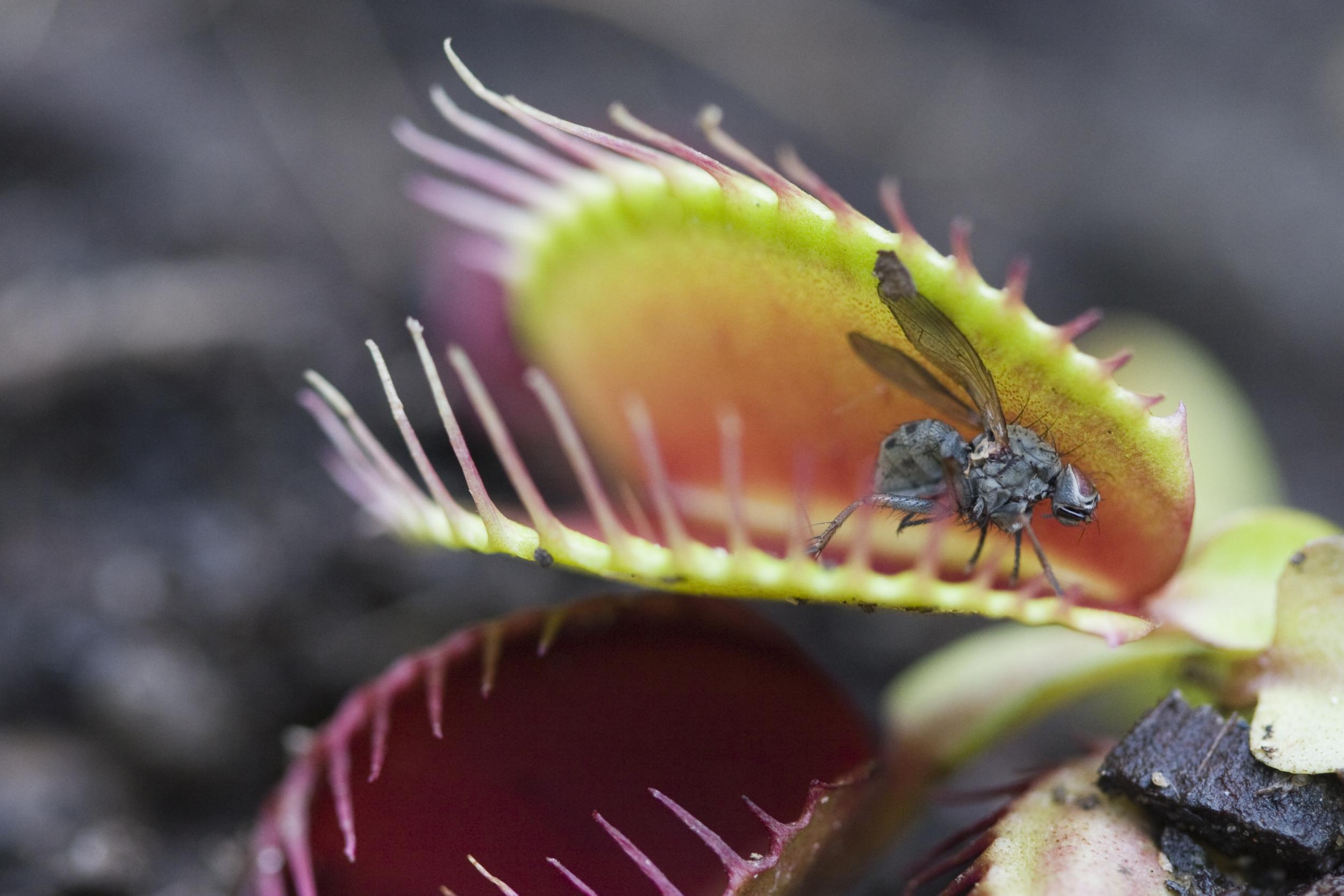Venus flytrap implant sees scientists take major step towards merging computers and living things

Scientists have successfully implanted an artificial neuron into a Venus Flytrap, in what could be a major breakthrough in the merging of living things and computers.
The neuron was able to control the plant, making its lobes close, the scientists report.
That in turn could be a major step towards the development of brain-machine interfaces as well as intelligent robots, they suggest. Such technology will require computers and living things to combine – but that has so far proven difficult.
Those difficulties are largely because the building elements of life are significantly different from those in electronic devices, and work on different principles. As such, scientists will have to find a way to link artificial devices with biological systems.
The technology used in the Venus Flytrap could overcome that fundamental divide. They work in similar ways to neurone, and so can control biological processes – but respond to electrical inputs in the way that make them able to be controlled by a computer.
The new research is described in a paper, ‘Organic electrochemical neurons and synapses with ion mediated spiking’, published in Nature Communications.
Join our commenting forum
Join thought-provoking conversations, follow other Independent readers and see their replies
Comments
Bookmark popover
Removed from bookmarks